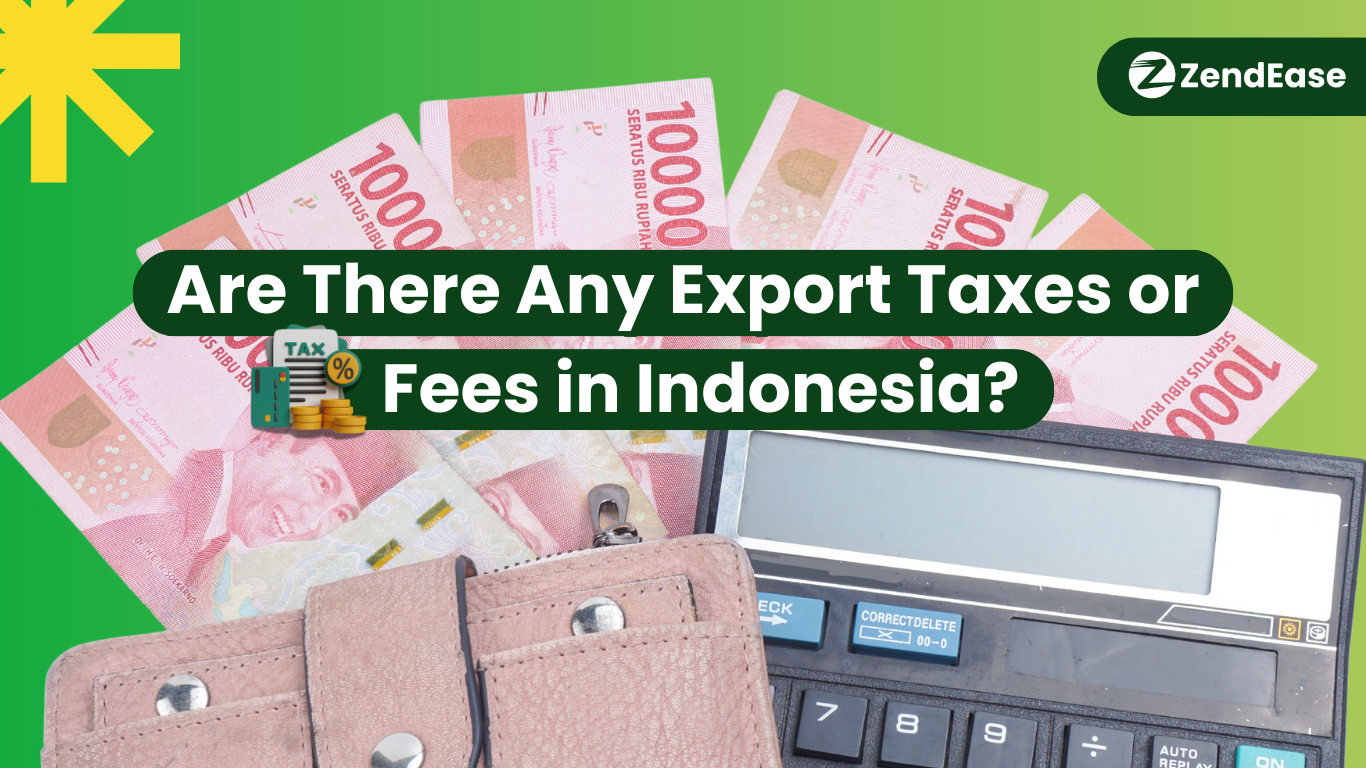Are There Any Export Taxes or Fees in Indonesia?
by Zia Fadhilla Thantry Luthan on Sep 18, 2025

It's crucial to know that exporting from Indonesia entails more than just packing your goods and sending them abroad — it also entails paying specific fees, obtaining the necessary permits, and occasionally paying export taxes. Being aware of these expenditures up front aids in better planning and helps you steer clear of unforeseen charges or delays.
In general, most products exported from Indonesia are not subject to export taxes. However, there are a few exceptions, notably for raw palm oil, some minerals, and forestry goods. These items may be subject to export duties (Bea Keluar), depending on market pricing and government rules.
What you need to know about fees and taxes:
- Export Taxes (Pajak Ekspor)
- Palm oil and derivatives
- Raw minerals (nickel ore, bauxite, copper concentrate, tin, etc.)
- Certain forestry products (e.g., rattan, certain types of timber)
- Scrap metals
- Specific rate (per metric ton), or
- Percentage of FOB value (Free on Board price)
Example: Crude palm oil has had export taxes ranging from $0 – $200 per ton, depending on global prices. - Export Levies (Bea Keluar / Export Duty)
- General Customs Fees
- Export declaration processing (PEB – Pemberitahuan Ekspor Barang)
- Customs clearance service fees (if using a freight forwarder or broker)
- Port handling fees
- Document authentication costs
- No VAT on Exports
- Personal Items and Used Goods
- There is generally no export tax
- You may only pay packing, freight, and customs agent fees
- Restrictions still apply for prohibited goods (firearms, narcotics, endangered species products, etc.)
- Export declaration fees
- Inspection or quarantine fees (especially for agricultural or food products)
- Certification costs, such as BPOM, Halal, or SVLK, for wood products
Export taxes are charged on specific commodities, usually raw or semi-processed goods that the government wants to control or encourage local processing of.
Common examples:
The tax rate can be:
This is officially separate from export tax but is frequently levied combined, particularly for palm oil and minerals. Customs (Direktorat Jenderal Bea dan Cukai) collects the products before they depart the port.
Even if your product is tax-free, you may still pay for:
Indonesian tax legislation requires that exports of commodities from Indonesia be zero-rated for VAT (0%). That means you don't have to pay VAT when exporting, and you may generally recover input VAT from your suppliers.
If you’re just exporting personal belongings or used household goods:
Beyond taxes, there are other potential fees to consider:
The real cost of the products varies according to product category, destination country, and delivery mode. Navigating these criteria might be difficult for inexperienced exporters. That is why having the right partner is essential, and if your goods are regulated commodities, you should expect to pay export taxes and levies, and if your goods are manufactured items, handicrafts, or personal possessions, you will most likely not be subject to export taxes, only shipping and service costs.
ZendEase is here to make your export process smooth and stress-free. We help you identify which permits, documents, or certifications your product needs—and whether any export duties apply. Our team ensures full compliance, so your goods clear customs faster and arrive at their destination without trouble.
With ZendEase, you don’t just get a logistics service. You also get an export partner who understands Indonesia’s export rules and global trade requirements.
So, what are you waiting for? Export confidently and easily with indonesia@zendease.com — your gateway to the global market.